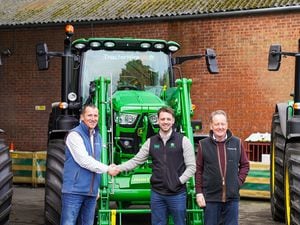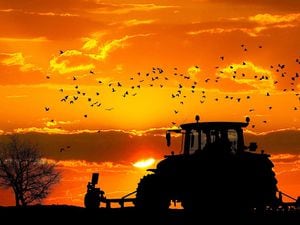The big questions for our farming future
More from less.

As the countryside evolves, an essential question is currently rising up the rural agenda – how can we produce more food for more people but use less land for agriculture?
As well as the nation’s food supply, we are told we need more renewable energy, more homes and more woodland. We must tackle climate change, create wildlife habitats and manage flood risk. All this requires the use of land on a small island with a finite land resource.
Meeting these needs without sacrificing food production is a hard test for the countryside but we must succeed. More so in Shropshire than many other counties, food and farming is the core of our rural communities and rural economy, creating jobs for retailers, scientists, engineers, transport, educations and vets as well as those actually working on farms. Eating food produced in the UK cuts our carbon footprint, there are health benefits of eating local food in season, and our farmers hold some of the highest standards in the world on animal welfare, farm safety and environmental sustainability.
Crucially, if you take away British farming, you take away those caring for the land, protecting the environment and maintaining our iconic landscapes. So how can we ensure a profitable and sustainable future for food and farming alongside all these other demands?
Advances in science and technology allow us to farm in new ways, to scrutinise field-by-field where our land is at its most productive, to target chemicals with accuracy and manage welfare better than ever before. We can invest more in skills and training, crucial in our more hi-tech and market-focussed industry. Some of us can make better use of our land and resources by working more closely with our neighbours and customers. We can bring in the next generation for new ideas and a fresh approach. And the jewel in Shropshire’s crown must be Harper Adams University, globally acknowledged for its innovation, from which we will all benefit.
So this is a logical time for farmers and landowners to take a step back and look at how and why we farm, whether we need to farm differently, or whether we should use parts of our land for other purposes. We are up for the challenge but we need Government to play its part too.
Exiting the Common Agricultural Policy is an opportunity for Government to direct more investment into making farming more productive and profitable. It is also a chance to transform the opportunities for farmers and landowners to derive a fair income for vital work that benefits the public. The creation of new Land Management Contracts could enable genuine cost-effective partnership between farmers and society that puts high quality food on our tables and protects our environment.
There is no doubt that farming and the countryside is entering an era of change. Not only must we prepare for the challenges but also ensure we are ready to grasp the opportunities for a more productive, responsible and sustainable future.
Caroline Bedell is CLA Director Midlands





